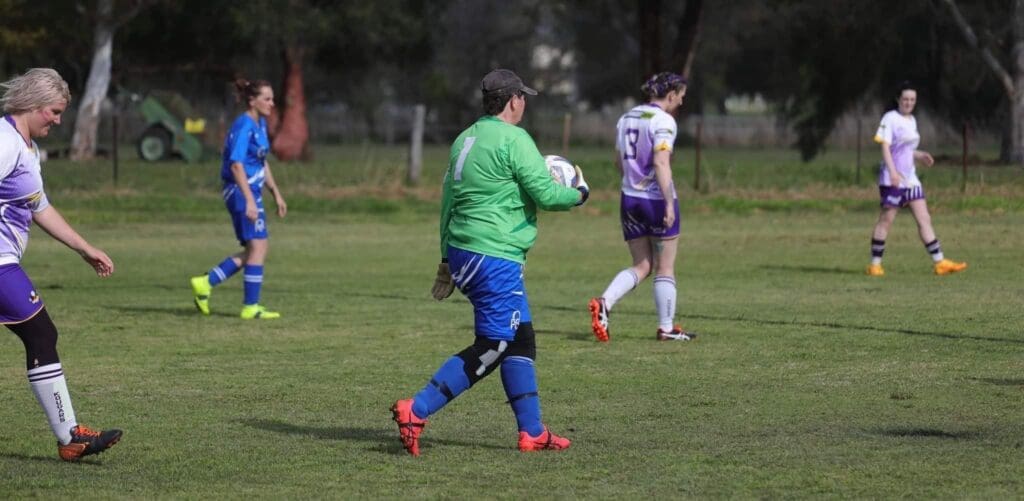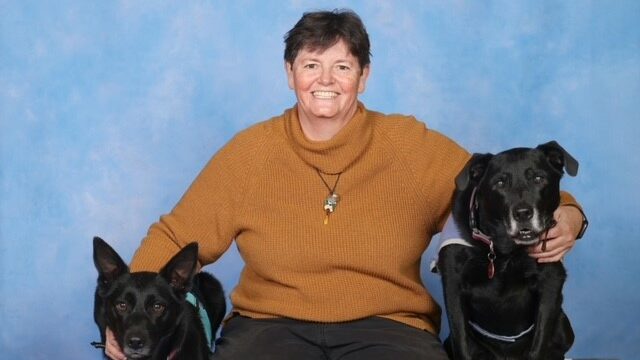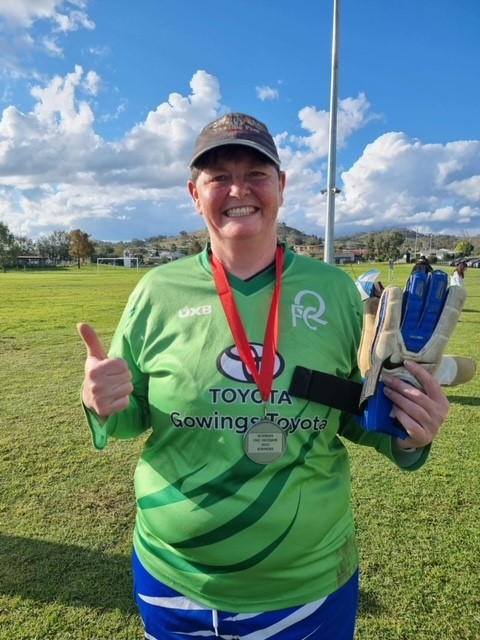
In 2019, Linda moved from Penrith to Scone to be closer to her mum. Soon after, she saw a new GP who suggested that being over 50, she should do a bowel cancer screening test.
Linda remembers being quite annoyed about it.
"I was really busy that day. I just wanted to get a prescription and get in and out quickly," says Linda.
Reluctantly, Linda did the test, which came back positive. Linda's doctor suggested a colonoscopy as the next step.
Despite initial reassurance from her doctor, the colonoscopy revealed a concerning polyp which had to be seen by specialist in Newcastle to be removed.
Further analysis confirmed the diagnosis: bowel cancer.
Surgery and recovery amid COVID-19
Linda's shocking news set in motion a series of appointments, scans, and ultimately, a life-changing surgery.
Surgery to remove 30cm of Linda's bowel was scheduled for March 2020, at the beginning of the COVID-19 pandemic. Linda was fortunate to be classified as a category one case, meaning her surgery was expedited due to the urgency of her situation.
Linda had to have a temporary stoma bag inserted after surgery, which caused a severe reaction.

"The wound just blew up and it was very painful," Linda reflects.
Thankfully Linda was able to go straight back into hospital in Newcastle to have immediate stoma reversal surgery.
"I was fortunate because, if my bowel cancer had been lower, I would have had to wear a stoma bag for life," says Linda.
The challenges Linda faced after bowel surgery
In the years following her surgery, Linda has faced moments of anxiety, especially after experiencing post-surgical bleeding.
Linda often felt unwell, thinking to herself "will I succumb to this and just blob around and head towards depression?"
Linda was working in a new school as a School Counseller when she received her diagnosis, requiring her to take extended leave.
"After surgery, I couldn't drive from Tamworth to the school in Quirindi every day because my bowel was unpredictable. I was extremely vulnerable to COVID and needed to stay home and heal," she says.
Luckily, Linda was able to work from home which helped her financially and allowed her to keep her job.
Linda now completes annual bowel cancer screenings and maintains a proactive approach to her health. She has even returned to playing soccer, a sport she loves, and has adapted her diet to support her new reality.
Support from Cancer Council
Throughout her journey, Linda found value in the resources provided by organisations like Cancer Council NSW and Bowel Cancer Australia.
With family members also going through cancer, she relied on Cancer Council's informative booklets and was grateful for the support services that helped her navigate her diagnosis and treatment.

"Cancer Council's bowel cancer information booklet was very helpful. I read and re-read it so many times," says Linda.
How cancer has changed Linda's perspective
Linda's cancer experience has reshaped her outlook on life. She now focuses on living in the moment, cherishing every day, and appreciating the people around her.
While the fear of recurrence lingers, she encourages others to remain hopeful and to build strong support networks.
"Even when you catch cancer early, you can't help but still think about your own mortality," says Linda.
Linda shares her story to encourage others to participate in bowel cancer screenings.
"It was horrendous what I went through but I'm still alive. I know it's a little bit embarrassing and annoying to do the test, but compared to what you can go through if you don't do it, it's worth it," she says.
Bowel cancer is most common in people over 50, but it can occur at any age. Ask your doctor about getting a bowel screening kit. People aged 50-74 receive a free bowel screening kit in the mail every 2 years.






